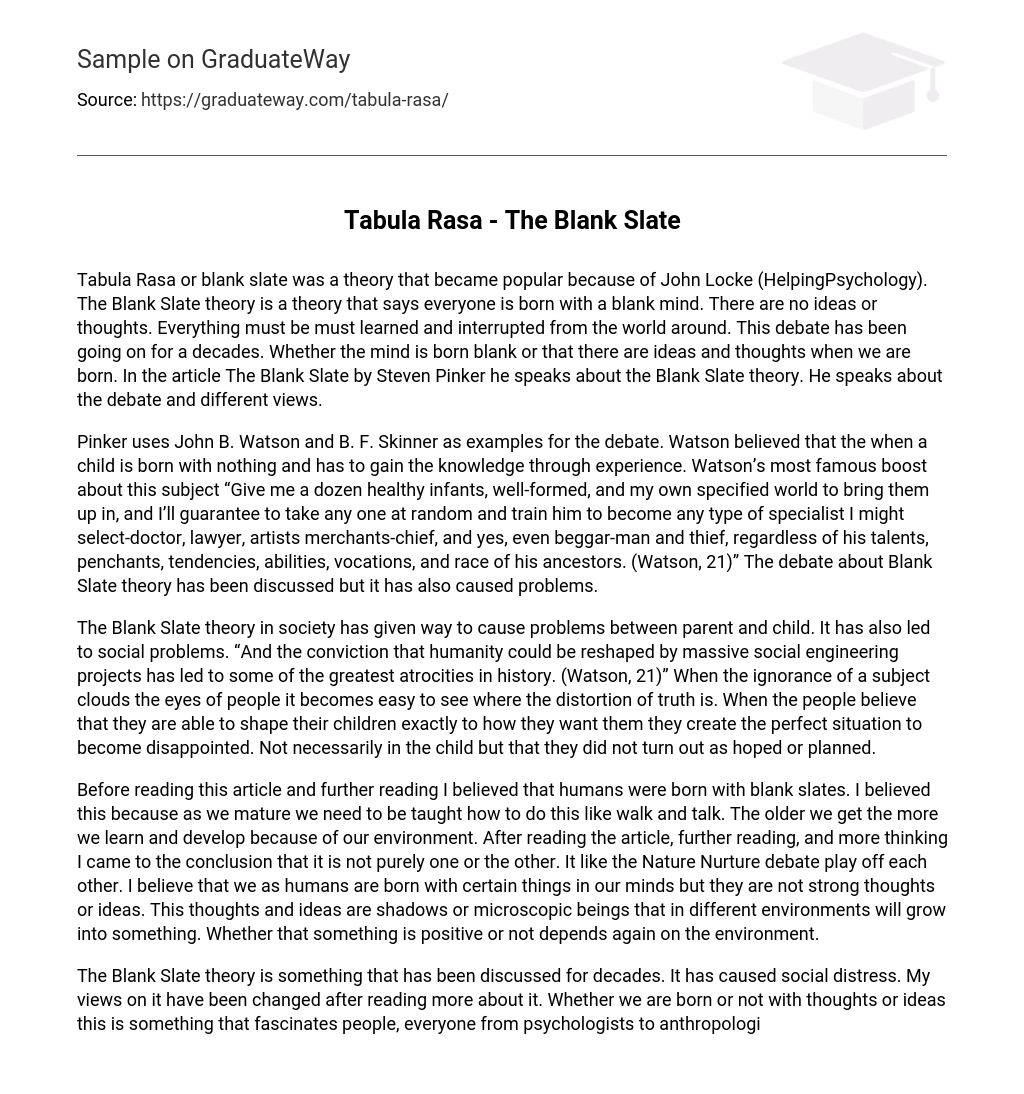Tabula Rasa or blank slate was a theory popularized by John Locke (HelpingPsychology) which states that everyone is born with a blank mind. According to this theory, there are no pre-existing ideas or thoughts, and everything must be learned and perceived from the external world. The debate surrounding this theory has spanned decades, questioning whether the mind is truly blank at birth or if there are innate ideas and thoughts. Steven Pinker’s article “The Blank Slate” delves into this debate, exploring different perspectives and viewpoints.
In his discussion on the Blank Slate theory, Pinker cites John B. Watson and B. F. Skinner as examples. Watson argued that children are born with no innate knowledge, but instead acquire it through their experiences. One of Watson’s well-known statements on this topic is: “Give me a dozen healthy infants, well-formed, and my own specified world to bring them up in, and I’ll guarantee to take any one at random and train him to become any type of specialist I might select-doctor, lawyer, artist, merchant-chief, and yes, even beggar-man and thief, regardless of his talents, preferences, inclinations, abilities, vocations, and race of his ancestors” (Watson, 21). This debate on the Blank Slate theory has engendered much discussion but has also caused some problems.
The Blank Slate theory in society has led to problems between parents and children as well as social issues. Watson (21) argues that the idea of altering humanity through large-scale social engineering projects has resulted in some of history’s worst atrocities. When individuals lack knowledge about a subject, they are susceptible to perceiving distorted truths. Believing that they can shape their children according to their precise wishes sets them up for potential disappointment. This disappointment may not necessarily be directed at the child, but rather towards the realization that the child did not meet expectations or conform to plans.
Before reading this article and further reading I believed that humans are born with a blank slate, needing guidance and teaching for various skills like walking and talking. Our learning and development progress as we age, influenced by our surroundings. However, after engaging with the article, additional readings, and contemplation, I now understand that it is not solely one or the other. Like the Nature Nurture debate, these aspects interact. I now believe that humans have innate qualities in their minds, though not powerful thoughts or ideas. These notions are like shadows or microscopic organisms that develop into something in different environments. Whether this development takes a positive or negative direction depends once again on the surroundings.
The concept of the Blank Slate theory has been a topic of discussion for many years, provoking societal turmoil. However, my perspective on this theory has shifted upon further exploration. The intriguing notion of whether our thoughts and ideas are innate at birth captivates various professionals, including psychologists and anthropologists.
Work Cited
HelpingPsychology. (2010, January 28). The Blank Slate Theory in Psychology. HelpingPsychology on HubPages. Retrieved September 19, 2013, from http://helpingpsychology.hubpages.com/hub/The-Blank-Slate-Theory-in-Psychology





